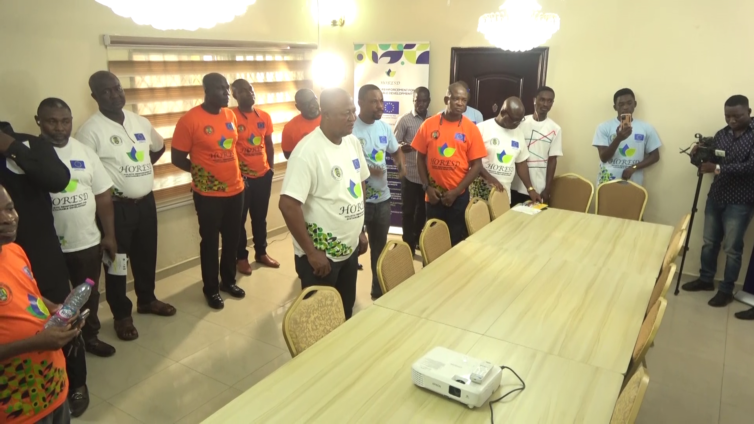The socially-excluded and marginalized persons in the Kumasi Metropolis are set to be trained in green business for gainful employment.
The training is part of a 2.5million Euro project funded by the European Union to facelift the sanitation system in the metropolis.
As the population in Greater Kumasi grows, waste collection and management is becoming a challenge.
Currently, there are little resources for the effective collection and management of solid waste.
The project dubbed “Holistic Reinforcement for Sustainable Development” (HORESD) project is to improve public service delivery in waste management within the Kumasi Metropolis.
A strategic Urban Waste Solid Management Plan has been developed as part of the project.
Metropolitan Chief Executive, Samuel Pyne, says green jobs will be created to execute the Waste Management Plan.
He was speaking on the sidelines of an inaugural ceremony for the establishment of a Green Information Plant.
“The delegates have taken turns on radio to create awareness on the need for citizens of Kumasi to partner the assembly in turning waste into gainful and income earning resources. This EU funded project will assist people at risk of social exclusion who work informally in the waste sector and wish to develop an economic activity in the area of sustainable circular economy.
A Sustainable Entrepreneurship Centre has been set up to train the socially-excluded and marginalized entrepreneurs.
Trainees will be provided with seed capital and capacity building to set up their own businesses in the circular economy.
“Through this project, a training plan will be carried out for those targeted in a school called Sustainable Entrepreneurship School. This school will empower these targeted population with the technical knowhow, reliable data and the financial resources to manage their businesses in the circular economy,” he assured.
A Territorial Management Group, made of representatives of local and national stakeholders, will oversee the project.
The project is a Europe Aid programme involving three local administrations, with the Mancomunitat de la Ribera Alta in Spain as the coordinating partner, the Kumasi Metropolitan Assembly as the beneficiary, and the Chamber of Praia in Cape Verde as the third collaborating partner.
Latest Stories
-
Development Bank Ghana targets 1 billion cedis funding for commercial banks this year
1 min -
Shatta Movement apologises to Ghana Society of the Physically Disabled after backlash
33 mins -
Sammy Gyamfi writes: Tema-Mpakadan Railway Project; A railway line to nowhere
1 hour -
Bright Simons: Is the World Bank saving or harming Ghana?
1 hour -
CAF Cup: RS Berkane banned from entering Algeria because of a map of Morocco with its Sahara
2 hours -
The media isn’t doing what is expected of journalism – Sulemana Braimah
2 hours -
Truck driver who caused train accident jailed 6 months
2 hours -
Music review: Okyeame Kwame proves rap dexterity on ‘No Competition’
2 hours -
How a 23-year-old fooled the internet with an AI Kendrick Lamar diss track
2 hours -
No man should be intimidated by the strength of a woman – Charlotte Oduro
3 hours -
Ghana is not immune to terrorist attack – National Security
3 hours -
WAFU B U-17 Championship: Ghana drawn in Group A, face Benin and Cote d’Ivoire
3 hours -
Two hit by stray bullet as Police clash with ‘wee smokers’
3 hours -
Peter Amewu blames truck driver recklessness for train accident
3 hours -
Okyeame Kwame aims for another Artiste of the Year win after 15 years
3 hours

